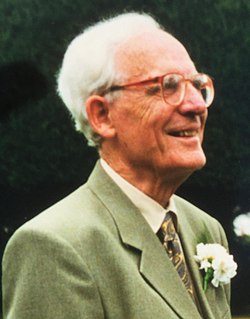A Quote by Boyd K. Packer
There is a temptation for the writer or the teacher of Church history to want to tell everything, whether it is worthy or faith promoting or not. Some things that are true are not very useful.
Related Quotes
In the upshot there is only one answer for the preacher who wonders whether he is worthy to preach the sermon he has composed or for the writer who wonders whether he is worthy to write the religious book he is working on. The answer is: Of course not. To ask yourself: Am I worthy to perform this Christian task? is really the peak of pride and presumption. For the very question carries the implication that we spend most of our time doing things we are worthy to do. We simply do not have that kind of worth.
While we destroyed the Centre Party, we have not only brought thousands of priests back into the Church, but to millions of respectable people we have restored their faith in their religion and in their priests. The union of the Evangelical Church in a single Church for the whole Reich, the Concordat with the Catholic Church, these are but milestones on the road which leads to the establishment of a useful relation and a useful co operation between the Reich and the two Confessions.
Teaching some things that are true, prematurely or at the wrong time, can invite sorrow and heartbreak instead of the joy intended to accompany learning.... The scriptures teach emphatically that we must give milk before meat. The Lord made it very clear that some things are to be taught selectively and some things are to be given only to those who are worthy.
One faith, St. Paul writes (Eph. 4:5). Hold most firmly that our faith is identical with that of the ancients. Deny this, and you dissolve the unity of the Church ... We must hold this for certain, namely: that the faith of the people at the present day is one with the faith of the people in past centuries. Were this not true, then we would be in a different church than they were in and, literally, the Church would not be One.
Have faith in man, whether he appears to you to be a very learned one or a most ignorant one. Have faith in man, whether he appears to be an angel or the very devil himself. Have faith in man first, and then having faith in him, believe that if there are defects in him, if he makes mistakes, if he embraces the crudest and the vilest doctrines, believe that it is not from his real nature that they come, but from the want of higher ideals.
I would not send my child to a vacation Bible school in 99.9% of the Baptist churches in America. Have some teacher that doesn't even understand anything about the gospel of Jesus Christ, ask those little children, 'How many of you want to go to Heaven?' and damn most of them! Harden their heart to the gospel with some silly profession of faith because it was a silly proclamation of the gospel! It brought no genuine repentance, it brought no faith; it's no different than the Roman church that baptizes every infant that is born.
Virtually every major technological advance in the history of the human species- back to the invention of stone tools and the domestication of fire has been ethically ambiguous. If you want to reason about faith, and offer a reasoned (and reason responsive) defense of faith as an extra category of belief worthy of special consideration, I'm eager to play. I certainly grant the existence of the phenomenon of faith; what I want to see is a reasoned ground for taking faith seriously as a way of getting to the truth , and not, say, just as a way people comfort themselves and each other
The blessed Paul argues that we are saved by faith, which he declares to be not from us but a gift from God. Thus there cannot possibly be true salvation where there is no true faith, and, since this faith is divinely enabled, it is without doubt bestowed by his free generosity. Where there is true belief through true faith, true salvation certainly accompanies it. Anyone who departs from true faith will not possess the grace of true salvation.

































